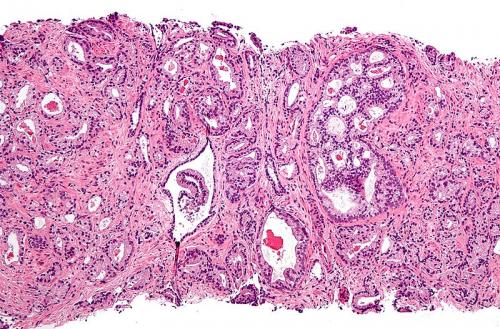A new way to personalize prostate cancer treatments
@RoyanGene
Rutgers researchers have discovered human genetic markers that work together to cause metastatic prostate cancer and its spread beyond the prostate. In this study, which was published in the journal Nature Cancer, they discovered prostate cancer cells in humans and mice and showed that extensive cooperation occurs between 16 genes, which leads to metastasis and often therapeutic challenges after that.
The identified genetic markers can predict whether a prostate cancer patient has a high probability of metastasis, including bone. Prostate cancer is the second leading cause of cancer-related death in men in the United States, with a five-year relative survival rate of nearly 100 percent if detected early, but metastatic prostate cancer has a 30 percent five-year survival rate. Current treatments, such as first- and later-generation antiandrogens that target male sex hormones, along with radiation therapy, chemotherapy, and others, are not always effective, and it is not possible to predict which patients are at risk of developing late-stage disease. .
Using protein markers discovered in people with prostate cancer, it is determined how much risk there is of developing metastatic prostate cancer, which can help us personalize treatment. Antonina Mitrofanova, an assistant professor at the Rutgers School of Health Professions and a research fellow at the Rutgers Cancer Institute in New Jersey, said: “Our results show that molecular profiling at the time of diagnosis can help patients receive better personalized treatment and lead to better outcomes.” For those who have the advanced type of the disease.
Testing for these genetic markers could predict which patients will not be able to respond to androgen-targeted therapies used in metastatic disease, researchers say, and could also reduce the need for patients to have multiple courses of ineffective therapy. The researchers, in collaboration with Cory Abate-Shen’s laboratory at Columbia University, have patented the results of this study and are looking to develop the aforementioned therapeutic and diagnostic tools.
Access link to the article:
https://medicalxpress.com/news/2020-10-personalize-treatments-prostate-cancer.html
@RoyanGene
This post is written by Saeid_Mohebbi
